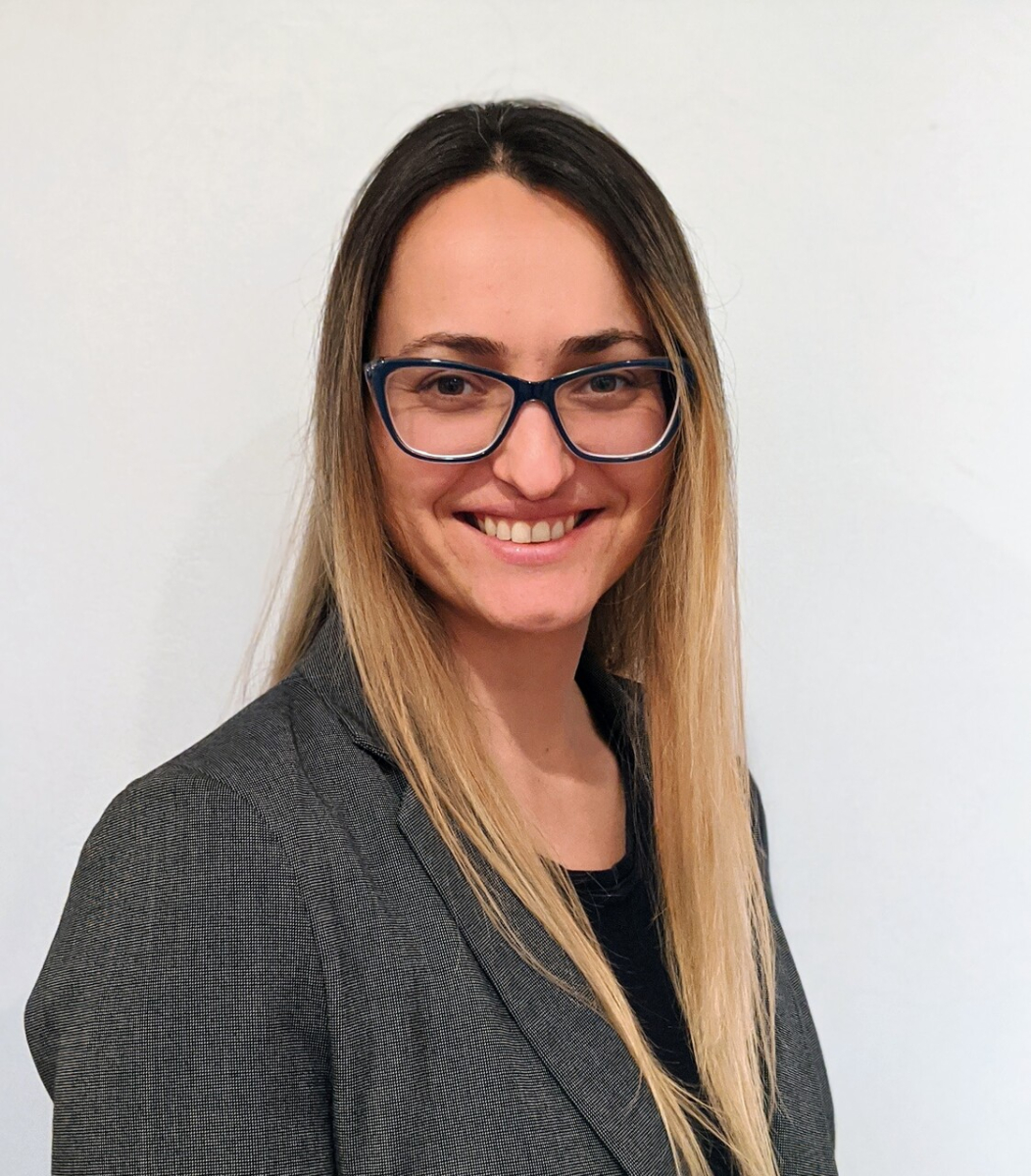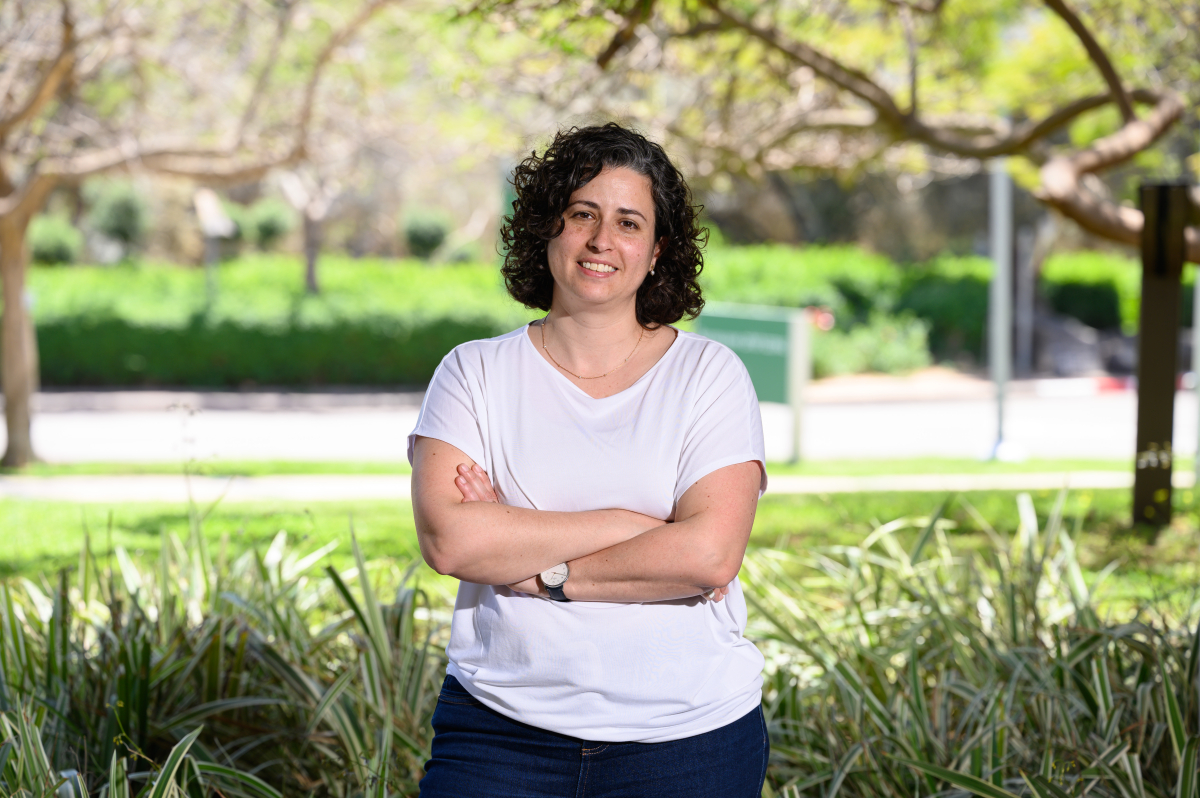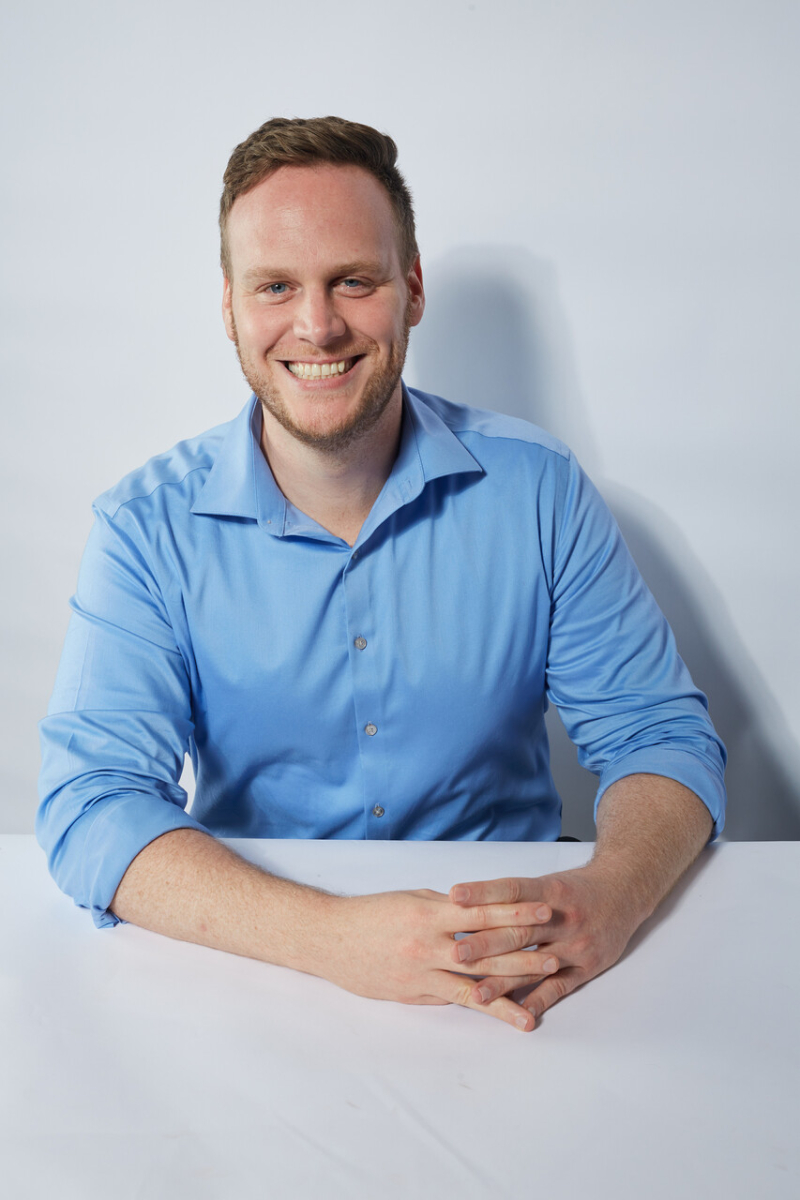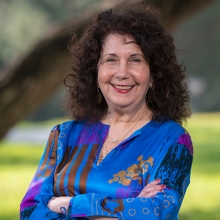The long road home
The tragic events of October 7 have made one of the most important decisions for young Israeli scientists—whether or not to return home after a postdoctoral fellowship abroad— harder than ever
Alumni

By Noga Martin
Since 2006, the nonprofit group ScienceAbroad has made it a mission to mitigate Israel’s brain drain by encouraging and assisting Israeli postdoctoral fellows working abroad to return home once their fellowships are complete.
The group’s 34 branches— located at major academic centers worldwide—provide social and academic support for Israelis from the time they begin planning their fellowships throughout their tenure at the host institutions. This includes career counseling, networking opportunities, and travel assistance for the job interview process, among many other support services on offer. ScienceAbroad partners with the Israel Innovation Authority in the Ministry of Economy and Industry, the Zuckerman STEM Leadership Program, and Israel’s universities, as well as with numerous companies in the industrial sector.
Notably, a third of ScienceAbroad branches are headed by Weizmann alumni, who shoulder the organizing responsibilities in addition to their own demanding lab work. In this interview, four Weizmann-trained scientists affiliated with ScienceAbroad discuss their current fields of study and the impact the tragic events of October 7 might have―for them and other Israeli researchers residing abroad.
NEW YORK
Versions of a virus: Dr. Inna Ricardo-Lax, The Rockefeller University

(photo credit: Dr. Yingpu Yu)
Dr. Inna Ricardo-Lax completed her MSc (2009) and PhD (2015) at the Weizmann Institute in the labs of Prof. Rivka Dikstein in the Department of Biomolecular Sciences and Prof. Yosef Shaul in the Department of Molecular Genetics (respectively), then joined the group of Prof. Charles M. Rice—a co-Nobel Prize laureate for his discovery of the Hepatitis C virus—at The Rockefeller University in New York. She has completed her postdoctoral fellowship and is now a research associate in the same lab.
At Rockefeller, Dr. Ricardo-Lax’s work focuses on two areas that were “hot topics” during the coronavirus pandemic: viruses, and the biology of RNA in viruses. Specifically, she focuses on RNA modifications, which are certain chemical changes in RNA, in the context of viral infection. During COVID, she and her colleagues built a system they called a “replicon,” which creates a non-infection virus that can safely be studied in a laboratory setting, so scientists can work on it without using a special room—essentially, a version of the virus that cannot be spread.
Dr. Ricardo-Lax was familiar with ScienceAbroad before departing for the United States with her family, having met some of the group’s representatives at various career events at the Weizmann Institute. She used their webinars for advice about what steps to take prior to a postdoctoral fellowship and how to choose a lab. When she arrived in New York, she found a tight-knit community of families connected to ScienceAbroad that she compares to an “urban kibbutz.”
As regional professional manager of one of the New York City ScienceAbroad branches, which covers The Rockefeller University, Memorial Sloan Kettering Cancer Center, and Weill Cornell Medical College (but not Columbia University, which has its own branch), Dr. Ricardo-Lax organizes professional events and meetings with visiting professors who clue members in on what recruiting committees in Israel are looking for. The group also helps members interviewing for jobs, with increased emphasis on positions in industry as well as in academia.
Dr. Ricardo-Lax acknowledges that while postdoctoral fellowships outside Israel have many advantages, not every qualified PhD graduate has the option of packing up and moving out of the country for three or four years. In the case of life scientists like herself, these postings can last even longer.
“It would be good if there were a realistic option to do a postdoc in Israel, because moving abroad is emotionally and financially tough,” she says. For women, she adds, the decision can be even more difficult. “I know amazing women, trailblazers in their fields, who simply couldn’t go abroad for their postdoc… It’s such a shame to give up on them.”
“It would be good if there were a realistic option to do a postdoc in Israel, because moving abroad is emotionally and financially tough,” says Dr. Inna Ricardo-Lax.
Moreover, she says, moving abroad with one’s family for a fellowship—complicated as it might be—can be simpler than moving back to Israel with a family, particularly after children have acclimated to their host country and language. While Dr. Ricardo-Lax has interviewed for faculty positions in Israel, she has mixed feelings about a possible return. Her daughters, now 11 and 14, have been in New York for more than half their lives. The war makes things even more difficult.
A new landscape
The horrors of the October 7 attacks were especially personal for Dr. Ricardo-Lax and her husband, whose niece was one of over 350 Israelis murdered at the Nova music festival at Reim. He flew back to Israel for the shivah (the seven-day period of mourning in Judaism), while she stayed in New York with their daughters. As they grappled with their loss, Dr. Ricardo-Lax says her older daughter was shocked at the anti- Israel rhetoric on social media. Wisely, she unfollowed the users behind the cruel content.
While Dr. Ricardo-Lax reports little if any anti-Israel activity at Rockefeller, she is well aware of the hostile climate at institutions such as Columbia, MIT, and the University of Pennsylvania. “I’m in touch with people there through a group of Israeli academics and the network of ScienceAbroad regional managers, and we talk about everything,” she explains.
Immediately after October 7, The Rockefeller University issued a letter condemning the Hamas assault, but which some found to be non-committal. At the urging of the Israeli postdocs and students, the university leadership issued a revised letter that Dr. Ricardo-Lax describes as “much more supportive.” The Israeli group also participates in many initiatives and pro-Israel demonstrations around New York City.
She also notes that many ScienceAbroad research fellows who would otherwise have applied for jobs at Columbia or Harvard are now reconsidering whether they would actually like to work at those universities, where many feel anti-Israel and antisemitic activity has gone nearly unchecked on campus.
As far as whether the attacks and ensuing war have changed any postdoctoral fellows’ minds about a possible return to Israel, Dr. Ricardo-Lax says she is seeing both people who are rethinking their plans to go home to Israel and people who are “rushing back, who don’t want to wait another second.”
BOSTON
The blood-brain barrier: Dr. Lucy Gordon, Harvard Medical School

(photo credit: Tanya Gordon)
Dr. Lucy Gordon serves as coordinator for the Boston Longwood branch of ScienceAbroad. She earned her PhD from Weizmann in 2019, studying the development of blood vessels using a zebra fish model under the supervision of Prof. Gil Levkowitz in the Department of Molecular Cell Biology. Since 2020, she has been a postdoctoral fellow in the lab of Dr. Chenghua Gu at Harvard Medical School, one of the world’s leading groups in research on the blood-brain barrier—a semipermeable layer of cells that regulates the movement of molecules and ions between the circulatory system and the central nervous system. In the Gu lab, she is expanding her research on blood vessels, studying how the cells that build blood vessels in the brain create that barrier.
Dr. Gordon, her wife, and their two children moved to Boston at the start of the COVID pandemic. Once there, she found herself longing to be part of a community. She managed to attend a few events hosted by the local ScienceAbroad branch before the initial lockdown, which saw the university largely close its doors from March to July of 2020.
Dr. Lucy Gordon: “In the context of the current situation, I don’t have an answer. I don’t know what will happen in Israel, so I can’t guarantee I’ll go back. A lot of us are asking, ‘What will we do?’”
“Before the lockdown, there were monthly meetings, and we’d get together and one postdoc would present their research, either ahead of a presentation or interview or just for the chance to get real ‘Israeli’ feedback,” she recalls.
When the coordinator of the branch announced that he was returning to Israel, Dr. Gordon felt the time was right to take the reins and try to get the community of Israeli postdocs back on its feet. By the time COVID restrictions were fully lifted, Israelis who hadn’t been able to participate in any activities began to “flood in.”
She and fellow Weizmann alumna Dr. Michal Sheffer took over, reinstated in-person events, and launched a WhatsApp group to make it easier for ScienceAbroad members to contact each other and ask questions about everything from research to taxes.
Strength in community
“October 7 really underscored the importance of belonging to community, that there’s strength in community. We’re all in the same boat,” Dr. Gordon says.
While Harvard Medical School saw only a fraction of the anti-Israel demonstrations that other faculties at Harvard did—the university’s lack of response to calls for violence against Jewish students led to then-President Claudine Gay being summoned to testify before Congress, along with her counterparts from the University of Pennsylvania and MIT—the atmosphere was far from comforting.
Dr. Gordon describes her and her Israeli friends’ astonishment at the lack of response from their colleagues.
“No one in my lab reached out to me… not on October 8, not on October 9. A lot of people felt the same way—how could something so enormous happen, and no one bothered checking in to see if I was OK, if my family was OK?” Finally, on October 12, the silence became too deafening, and Dr. Gordon emailed everyone in her lab to share her experiences. At that point, some did send her messages of concern, but to this day, she says, others have simply remained silent. “It was really hard,” she remembers.
The first protests at Harvard Medical School were small, almost “absurd,” she says—small groups would show up with placards and slogans, and she would go outside and document them to see if anyone crossed a line and called explicitly for “Intifada” or “From the River to the Sea.”
“We were naïve, because within a week, everyone was screaming ‘From the River to the Sea,’ and worse,” she says.
In the first days after the October 7 attacks, the Israeli expatriate community threw itself into volunteer activities, organizing and donating everything from tactical military equipment for soldiers to diapers for evacuated families. ScienceAbroad, meanwhile, advocated for Israel and Jewish students in the academic world, sending emails to raise awareness and documenting communications from the universities, helping students reach out for help dealing with antisemitic incidents, and organizing meetings for Israeli graduate students and scientists.
Embracing Israel
While she has experienced little overt antisemitism herself, Dr. Gordon describes the atmosphere as hostile. One incident in particular shook her up: her daughter, now eight years old, is part of a local Israeli Scouts group. One weekend, they had a field trip planned, and after some deliberation, the organization decided they would still hold the event—but warned parents not to send their children dressed in uniforms, or wearing anything blue and white, or with Hebrew writing on it. They also hired private security guards.
“It gave me goosebumps, like we were back in dark times. It’s scary,” she says.
Her children have not encountered any direct antisemitism—yet, she adds. In fact, they seem to be instinctively moving closer to their Jewish and Israeli identities. One day, her son brought home a book about Israel from the school library, and her daughter now wears a Star of David necklace. It helps, she says, that the family lives in a quiet suburb of Boston.
In February, they flew to Israel for a family wedding, and she and her wife—knowing that the children would be confronted with posters of the Israeli hostages in Gaza everywhere they turned—prepared them for what they would see, as well as for the possibility of rocket sirens.
An unknown future
When Iran carried out an unprecedented ballistic missile attack on Israel the night of April 13, Dr. Gordon and her friends watched the live coverage. Much like six months earlier, when news of the Hamas attacks and brutality first broke, no one outside of her Israeli community reached out. “People either don’t know and don’t want to know, or they know and don’t want to get into it.
“The mentality here is really different, and I think the Israelis are learning that the hard way after October 7,” she says.
Four years into her postdoc, Dr. Gordon says she is “starting to feel the end,” but it could take another year or two before she is ready to make a move. “In the context of the current situation, I don’t have an answer. I don’t know what will happen in Israel, so I can’t guarantee I’ll go back. A lot of us are asking, ‘What will we do?’”
PARIS
Spatial awareness in cells: Dr. Neta Felsenthal, Institut Curie

Dr. Neta Felsenthal completed both her MSc (2013) and PhD (2019) at the Weizmann Institute under the supervision of Prof. Elazar Zelzer in the Department of Molecular Genetics, studying the development and maturation of the enthesis, the tissue that connects bones and tendons.
Since 2020, she has been a postdoctoral researcher in the lab of Prof. Danijela Vignjevic at Institut Curie in Paris, examining the interaction between cells and the extracellular matrix (ECM)—a network of proteins and other molecules that surround, support, and give structure to cells and tissues.
Specifically, the group studies the intestine, which has one of the most rapidly regenerating tissues in the human body, with all intestinal cells replacing themselves in cycles of five to seven days.
“ScienceAbroad made it easier for us, and I wanted to help those who came after me,” says Dr. Neta Felsenthal.
Dr. Felsenthal investigates the intestinal basement membrane—a sheet-like, specialized type of ECM onto which intestinal cells adhere, proliferate, and migrate. In the intestine, cells undergo a tightly regulated life cycle, proliferating in indents in the ECM called “crypts” and migrating up elongated finger-like protrusions called “villi.” As the cells migrate, their functional roles change until they reach the top of a villus and die.
While research has yet to determine what cues guide the cells up the villi or how they identify their positions, Dr. Felsenthal hypothesizes that the composition or stiffness of the basement membrane might translate into a type of spatial information that regulates the cell behavior.
‘Zero regrets’
Dr. Felsenthal notes that while the original stated goal of ScienceAbroad was to bring young scientists back home to work in Israeli academia, it has now expanded its mandate to also help those abroad who are keen to go into industry in Israel. “There aren’t enough jobs [in research], unfortunately,” she says.
Having known for years that she wanted to run a lab of her own, pursuing a fellowship abroad was a necessary step after earning her PhD. However, moving to another country with a spouse and young children is complicated. The ScienceAbroad community, particularly on Facebook, she says, was an enormous help and source of information as they were making the decision to move to Paris and then once they arrived.
“I think that going away without having anyone at the destination who can speak your language and is willing to help makes it harder. ScienceAbroad made it easier for us, and I wanted to help those who came after me,” Dr. Felsenthal explains.
She has “zero regrets” about making the move to Paris, she adds—even though the family arrived at the peak of the COVID pandemic. However, running the local branch of ScienceAbroad, in addition to full-time postdoctoral research, presents certain challenges. The local community of Israeli academics is much smaller than in US cities, for example. She says that one reason for this is that Israelis are less likely to apply for postdoctoral positions in non-English speaking countries. Another is that faculty in Israel tend to encourage students to seek out postdoctoral positions at the same institutions where they completed their own fellowships—and these are frequently in North America.
Thus, Dr. Felsenthal finds herself organizing meetings and activities for academics at different career stages—ranging from those who have secured faculty positions in the French academy, to postdocs, PhD, and master students—and from diverse disciplines, from biology, physics, and computer science, to music, linguistics, and architecture.
Family connection
On the awful morning of October 7, 2023, a family friend called to check in. Dr. Felsenthal and her husband began following a few different news outlets online to get reports from as many sources as possible, even the Hamas TV channel.
Their niece, who was on a year of national service prior to her military conscription, was located at Kibbutz Ein Hashlosha in the western Negev, one of the communities targeted by Hamas terrorists. At least four civilians were killed there, and several were taken hostage. Her niece was barricaded in a fortified room with a group of other national service youth, without a phone. They were trapped there for more than 12 hours before they were rescued and evacuated to Eilat with the rest of the surviving kibbutz members.
On the following Monday, Dr. Felsenthal told her colleagues, with tears in her eyes, what had happened. Everyone sympathized except for one lab member, who told her she had “no idea what she was talking about” and accused her of presenting a one-sided story. Colleagues stepped in to shut down the interaction. Later, this group member inquired about her family in Israel, but never apologized for his allegations.
“That was the worst of it,” she says.
Still, Dr. Felsenthal cautions her children (7 and 10) not to speak Hebrew loudly in the Metro. For a time, there were armed guards at the entrance to the Jewish school they attend. “While anti-Israeli demonstrations do happen, we try to avoid them, and to us Paris feels relatively quiet,” she says.
ISRAEL
From neurons to nuggets: Dr. Raz Bar-Ziv, Believer Meats

(photo credit: Future Meat)
Dr. Raz Bar-Ziv, co-founder of the Israeli branch of ScienceAbroad, earned both his MSc and PhD at the Weizmann Institute, working under Prof. Naama Barkai in the Department of Molecular Genetics. He then spent four years as a postdoctoral fellow at the University of California, Berkeley before returning to Israel in August 2022.
His PhD thesis focused on a fundamental issue in biology— DNA replication. In the Barkai lab, Dr. Bar-Ziv worked on understanding two processes that do not necessarily “mesh”—the cell having to replicate its DNA by making two copies of genes, and the process of the cell using its DNA as a template for gene transcription, to produce RNA.
Super cells
As a postdoctoral fellow at UC Berkeley, he studied aging, with an emphasis on how different tissues communicate during the aging process. Using a species of worm (C. elegans) as a model, he discovered that certain glial cells—a type of cell in the central and peripheral nervous systems that support neurons—can control how quickly an organism ages. In C. elegans, four cells out of 1,000 can determine how long a worm lives by secreting molecules related to mitochondrial function, which cause other cells to remain “younger.”
Furthermore, he found that these glial cells can protect neurons from protein aggregation, which underlies disease states such as neurodegenerative illnesses. Dr. Bar-Ziv and his colleagues observed that these cells can even decrease symptoms of Huntington’s disease in their model system, an incurable and invariably fatal genetic neurodegenerative condition.
As head of an R&D team at the Rehovot-based cultured meat start-up Believer Meats (formerly Future Meat Technologies), he is applying his biology training to researching how to help chicken cells “grow” into chicken nuggets, without genetic modification or use of antibiotics. His team is studying the chicken cells’ metabolism, with the goal of understanding what nutrients they take in and how their growth medium can be engineered to support their efficient development, ultimately growing large quantities of chicken cells in a cruelty-and slaughter-free manner.
Lemons into lemonade
Dr. Bar-Ziv first connected with ScienceAbroad when he arrived at UC Berkeley, attending lunches and events. Eventually he and another postdoctoral fellow took over the management of the local branch and worked to create a community for Israeli postdocs from all research disciplines—not just scientists.
When the COVID pandemic hit, the Israelis found themselves at loose ends. Not only were labs often closed—Dr. Bar-Ziv’s lab shut down for three months—but trips back home or visits by Israeli researchers were also off the table.
Turning lemons into lemonade, Dr. Bar-Ziv consulted with ScienceAbroad CEO Nadav Douani and proceeded to launch two new initiatives for the organization. The first was a life sciences symposium, intended to introduce the local community of Israeli postdocs to academia and industry in Israel. The meetings, held online, lasted three to four hours and operated like a formal conference, with registration and a scientific committee that selected submissions for presentations.
The symposium has been held every year since, and the model has expanded to other fields, drawing Israeli academics who scout participants for faculty positions.
“A lot of people told us that they hadn’t thought of applying for a faculty position in Israel, but search committee representatives sought them out after hearing their talks at the symposia. This is the essence of what ScienceAbroad is trying to do—both support researchers while they are abroad and support them in returning to Israel, helping them find work and re-integrate into the ecosystem of academia or industry,” Dr. Bar-Ziv explains.
His second initiative was the “super-groups”—weekly open meetings of 20 or 30 people, to which scientists from Israel were also invited. Inspired by the weekly meetings he remembered as a PhD student in the Barkai lab, the format was loose, with each session devoted to one participant’s ongoing research project. Unlike seminars, where a researcher presents a completed project, the super-groups were intended to inspire discussion. People would ask questions and offer constructive criticism and feedback.
Home base
While it might seem counterintuitive to operate a branch of ScienceAbroad in Israel, there is good reason for its existence, he explains. Once back home, Dr. Bar-Ziv collaborated with Nadav Douani on a new project called “Sciencement,” a development program that focuses on issues such as entrepreneurship, innovation, and business—subjects he points out are important for scientists in academia, as well. He also worked with Douani in persuading Knesset members to establish a lobby for returning scientists, an idea that came to pass in June 2023 with opposition and coalition MKs coming together to conceive of ways to support Israeli scientists who opt to come home.
“After people arrive [home], there are more things that could be done to help them find work, establish collaborations, network. Networking is very important—it influences scientific progress,” Dr. Bar-Ziv points out.
In December 2023, he and Dr. Reut Shainer—who returned to Israel after a postdoc at the US National Institutes of Health—set up the Israeli Alumni branch of ScienceAbroad, which held its gala opening in the offices of the Tel Aviv firm Amiti Ventures. Attendees included principal investigators from universities, CTOs of biotech companies, industry scientists, and consultants, all of whom shared the experience of returning to Israel after studies overseas.
Dr. Bar-Ziv feels that the aftermath of October 7 has made the decision of whether or not to return to Israel a fraught one. He sees constant questions about returning in ScienceAbroad’s Facebook groups and feels the group is able to provide support. He says that while they “absolutely” see people coming back because of, or in spite of, the war, others who might have planned to return now aren’t sure.
“Personally, I’m very happy I returned to Israel. I think it was one of the best decisions I ever made. I love Israel and I love being here. I really feel that this is my home,” he says.








